Happy New Year from Pioneer Institute
/0 Comments/in Featured /by Editorial Staff Share on Facebook
Share on Twitter
Share on
LinkedIn
+
We hope you are taking time to celebrate and find peace during this season. Thank you for your support for Pioneer, which has helped us stay focused on steering the state’s debate on the pandemic response, and making progress on our key policy objectives. Here’s to a great 2021 for Massachusetts and the country.
Recent Posts

Award Winner Peter Cozzens on Tecumseh, the Indian Wars & the American West
This week on “The Learning Curve," Cara and Gerard talk with Peter Cozzens, the award-winning author of The Earth Is Weeping: The Epic Story of the Indian Wars for the American West. As National Native American Heritage Month winds down, Mr. Cozzens reviews what our schoolchildren should know about Native Peoples’ innumerable contributions and heart-wrenching experiences.

Award-Winner Nathaniel Philbrick on the Mayflower and the First Thanksgiving
This week on “The Learning Curve," Cara and Gerard talk with Nathaniel Philbrick, historian, winner of the National Book Award, finalist for the Pulitzer Prize, and author of Mayflower: Voyage, Community, and War. Mr. Philbrick shares what we should know about the actual historical events of the First Thanksgiving in 1621.
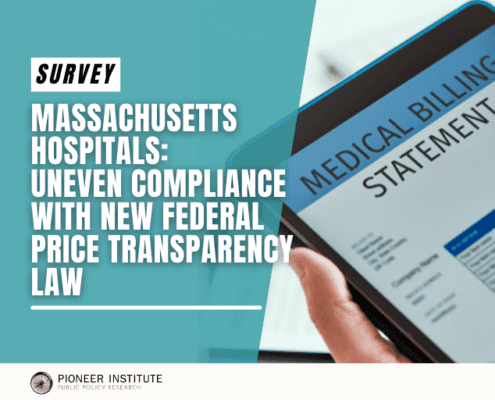
Survey Finds Spotty Compliance Among Hospitals with Federal Price Transparency Law
A 2019 federal law requires hospitals to make prices for 300 shoppable services available online in a “consumer-friendly format,” but a Pioneer Institute survey of 19 hospitals finds that information on discounted cash prices—the price most likely to be charged to consumers paying out of pocket—was unavailable at seven of those hospitals.

Georgia’s Alisha Thomas Searcy on School Choice, Teacher Unions, & Elections
This week on “The Learning Curve," Cara and Gerard talk with Alisha Thomas Searcy, the Democratic nominee for Georgia state school superintendent. She shares her experience as a former six-term state legislator and school leader; her recent bid for Georgia’s top education post; and her passion for K-12 education reform.

Legal Property Theft: Legal Defense Against Town Taxman Taking Neediests’ Deeds
This week on Hubwonk, host Joe Selvaggi talks with President of PioneerLegal and retired federal judge, Hon. Frank J. Bailey, about PioneelLegal’s work to advocate for the U.S. constitutional prohibition against the practice of municipalities taking an the entire value of a property to settle a relatively small tax debt, a procedure legal in Massachusetts and thirteen other states.

Pioneer Institute Statement on Question 1
Yesterday, voters came closer than many expected to rejecting the largest tax increase in Massachusetts history, even though opponents were dramatically outspent by the unions that bankrolled the amendment to the state Constitution.

KaiPod Learning’s Amar Kumar on Homeschooling Pods & Blended Education
This week on “The Learning Curve," Cara and Gerard talk with Amar Kumar, founder and CEO of KaiPod Learning, a network of in-person education centers for online learners and homeschoolers, based in Massachusetts. They discuss how the pandemic dramatically changed parents’ sentiments about their traditional public schools, opening the door to wider private school choice options, including homeschooling, micro schools, and pods.

Right To Save: Paying Healthcare Consumers To Shop For Value
This week on Hubwonk, host Joe Selvaggi talks with healthcare policy expert Josh Archambault about the findings from his Cicero Institute report, The Right to Save: The Next Generation of Price Transparency. He outlines how to incentivize healthcare consumers to utilize price information to reduce out-of-pocket costs, and lower healthcare costs for everyone.
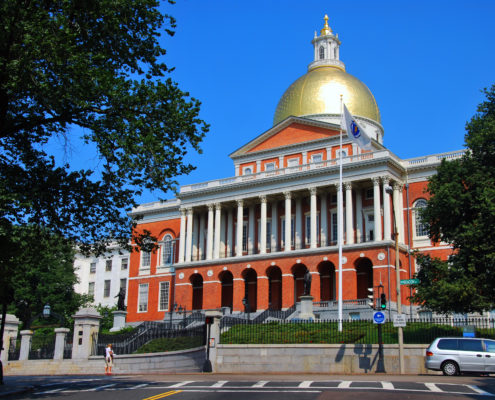
Taxachusetts Must Be Stopped
Going back to the bad old days of Taxachusetts would be an almost unfathomable mistake. Between the $3 billion bombshell that upended the recent legislative session, the ambiguity about how the tax revenue will actually be spent, and the contrasting examples of neighboring New Hampshire and Connecticut, Bay State voters have plenty of reasons to come back to reality and reject the ill-conceived proposal to amend the Massachusetts constitution this November.

Harvard research points to ending drug cost help
A common grievance about Harvard is that the university is out of touch with the concerns of everyday Americans. This perception is confirmed by recent research from Harvard Business School that contends patients should be denied assistance that helps them afford their prescription drugs. The Harvard study argues that in order to control drug prices, the government should deny patients’ access to copay assistance programs offered by drug manufacturers. It flies in the face of federal and state efforts to protect the value of such assistance programs for patients and ignores basic facts about how and when patients use copay assistance to access their medications.

Stanford’s Pulitzer-Winning Prof. Jack Rakove on James Madison, The Federalist Papers, & U.S. Constitutionalism
This week on “The Learning Curve," Cara and Gerard talk with Dr. Jack Rakove, Coe Professor of History and American Studies and Professor of Political Science Emeritus at Stanford University, and the Pulitzer Prize-winning author of Original Meanings: Politics and Ideas in the Making of the Constitution. Professor Rakove reviews the biography of James Madison, often called the "Father of the Constitution," and the influence of classical and Enlightenment learning on his farsighted political thought and leadership.

Grading State Governors: Do Higher Taxes Equate To Higher Value?
This week on Hubwonk, host Joe Selvaggi talks with Cato Institute’s Chris Edwards about the new report he co-authored entitled, "Fiscal Policy Report Card on America’s Governors 2022." They discuss how Massachusetts Governor Charlie Baker’s fiscal stewardship compares with other states, and explore whether higher tax rates and spending correlate with better state performance and resident satisfaction.

UK’s Miranda Seymour on Mary Shelley and Frankenstein for Halloween
This week on a Halloween edition of “The Learning Curve," guest host Mary Z. Connaughton talks with Miranda Seymour, novelist and definitive biographer of Mary Shelley, author of the classic Gothic novel, Frankenstein.
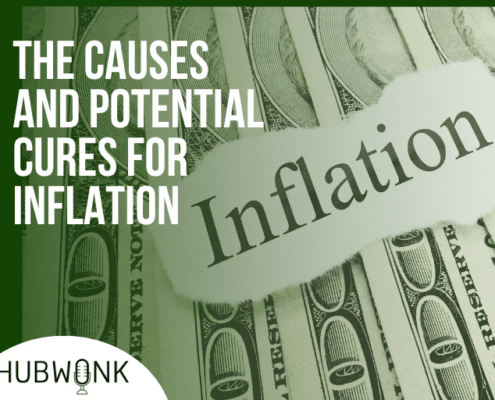
The Causes and Potential Cures for Inflation
This week on Hubwonk, Harvard economist and Pioneer Institute board member Ed Glaeser interviews Larry Summers, former U.S. Treasury Secretary and President Emeritus of Harvard University, for a special episode on the origins of inflation, its impact on the American economy, and a roadmap to recovery.

UCLA’s Dr. Maryanne Wolf on Reading, Brain Science, & the Digital Age
This week on “The Learning Curve," Cara Candal and Gerard Robinson talk with Dr. Maryanne Wolf, Director of the Center for Dyslexia and Diverse Learners at the UCLA Graduate School of Education and Information Studies, and the author of Reader, Come Home: The Reading Brain in a Digital World.
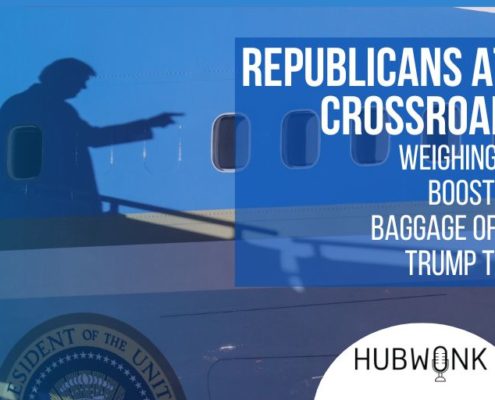
Republicans at a Crossroads: Weighing the Boost and Baggage of the Trump Train
This week on Hubwonk, host Joe Selvaggi talks with political scientist and author, Northeastern University Professor William Mayer, about the new book he has edited, The Elephant in the Room: Donald Trump and the Future of the Republican Party. They discuss how former president Trump has changed, and has been changed, by the GOP, and which path the Republican party is likely to take in the future.

Jeff Wetzler, Co-founder of Transcend, on Innovation in School Design
This week on “The Learning Curve," Cara Candal and Gerard Robinson talk with Jeff Wetzler, co-founder of Transcend, a nonprofit focused on innovation in school design that works with hundreds of school communities in over two dozen states in America.
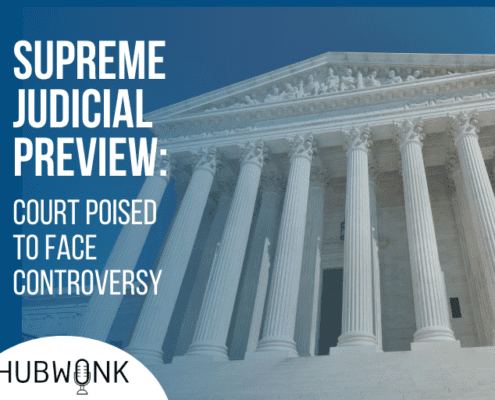
Supreme Judicial Preview: Court Poised To Face Controversy
This week on Hubwonk, host Joe Selvaggi talks with constitutional scholar Thomas Berry about the important questions being decided in the more high profile cases facing the newly opened session of the Supreme Court. They discuss how the addition of newly appointed Justice Ketanji Brown Jackson could add a fresh perspective on the concept of originalism.



